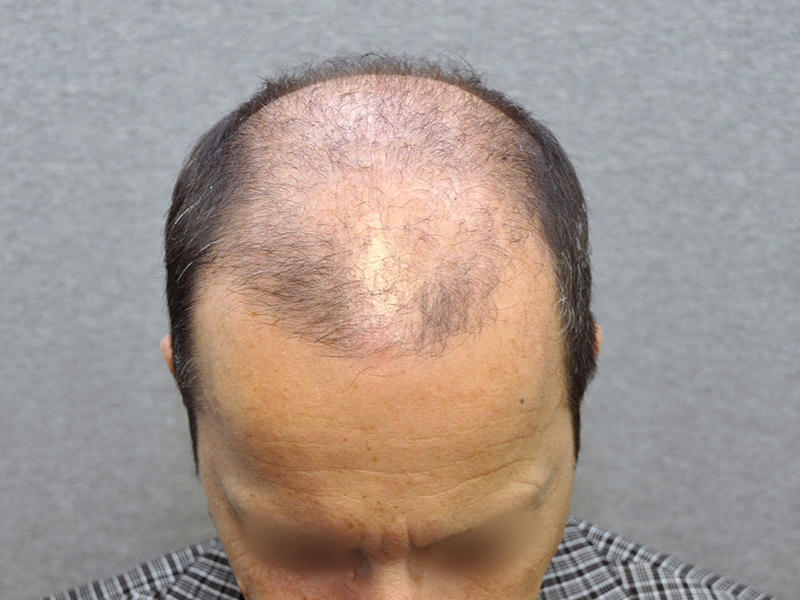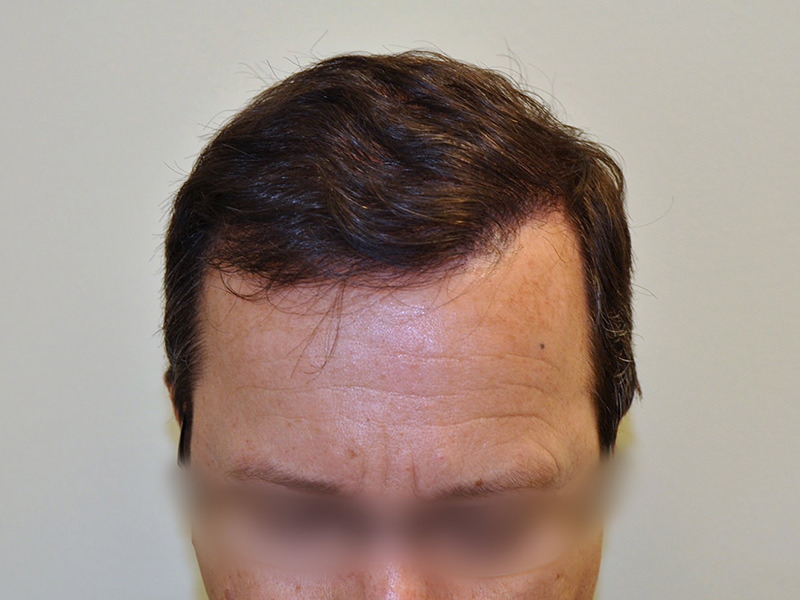
Postpartum Hair Loss
Discover Causes and Treatment in Vaughan, Toronto and Davenport.
After giving birth, many women experience hair loss. Four out of ten new mothers lose more hair than usual in the first three months after giving birth. While hair loss is a common problem, it is essential to understand the causes and how to deal with them. Doctors Philip Solomon and Mark Korman, board-certified ENT surgeons in Vaughan, Toronto and Davenport with over 40 years of combined experience in hair transplant procedures, provide valuable information on post-partum hair loss and how to manage this temporary condition.
What is Postpartum Hair Loss?
Post-partum hair loss, or telogen effluvium, generally begins a few weeks or months after giving birth. Many women notice that there is more hair in their shower drains or on their brushes. Stress, hormonal changes and the physical trauma of childbirth usually trigger this type of hair loss. It is a natural reaction to the significant hormonal fluctuations during and after pregnancy.
Doctors Philip Solomon and Mark Korman, hair restoration expert in Vaughan, Toronto and Davenport with extensive experience in FUE and FUT procedures. They advise new mothers to treat post-partum hair loss as temporary and let it resolve itself.
What Causes Postpartum Hair Loss?
High hormones such as estrogen and progesterone encourage hair growth during pregnancy, so hair stays in the growth phase for longer. Many women experience thicker, shinier hair during pregnancy. However, hormone levels return to normal after giving birth, leading to further hair loss. This can be alarming but is generally a normal part of post-partum recovery.
Doctors Philip Solomon and Mark Korman, who have many years of experience in hair transplants at their clinics in Vaughan, Toronto and Davenport, explain that post-partum hair loss is mainly due to hormones and usually resolves itself over time.
How Long Does Postpartum Hair Loss Last?
Post-partum hair loss generally lasts about three months after giving birth. If it continues beyond this period, there may be other underlying causes. Consulting hair specialists such as Dr Philip Solomon and Dr Mark Korman, experts in hair transplants, can help identify and treat any persistent problems.
Can Postpartum Hair Loss Be Prevented?
While postpartum hair loss is a natural part of the post-pregnancy process, there are some steps you can take to support hair regrowth:
- Maintain a Nutritious Diet: Eating a balanced diet rich in vitamins and minerals, especially protein, can aid hair regrowth. Lean meats, beans, and legumes are excellent protein sources supporting overall hair health.
- Be Gentle with Your Hair: Avoid hairstyles that pull on the scalp, such as tight buns or ponytails, as they can lead to traction alopecia, worsening postpartum hair loss. Opt for loose hairstyles to minimize strain on hair follicles.
How to Manage Postpartum Hair Loss
Although postpartum hair loss is nothing to be ashamed of, there are ways to manage it and boost your confidence:
- Try a New Hairstyle: Shorter cuts or bob hairstyles can create the illusion of fuller hair. These styles are also easier to maintain, which is especially helpful when adjusting to life with a newborn.
- Use Volumizing Products: Volumizing shampoos and mousses can add body to thinning hair. Experimenting with different products can help you find the right one for your hair type.
- Opt for Heatless Curls: Heatless curls, such as braiding damp hair overnight, can add volume and texture without damaging your hair.
Other Causes of Hair Loss in Women
If postpartum hair loss persists, other factors could be contributing. These include:
- Female Pattern Baldness: This hereditary condition leads to gradual thinning, particularly at the crown or along the parting line.
- Stress: High stress levels can cause telogen effluvium, a condition in which stress hormones cause excessive shedding.
- Diet: Nutritional vitamin deficiencies like iron, zinc, and biotin can negatively impact hair health.
- Medications: Some medications, including chemotherapy and antidepressants, can cause hair loss as a side effect.
- Medical Conditions: Thyroid disorders and autoimmune diseases can also contribute to hair thinning or loss.
If you’re a woman in Vaughan, Toronto and Davenport that is concerned about persistent hair loss, it may be time to consult Dr. Philip Solomon and Dr. Mark Korman, who have experience in addressing hair loss through FUE and FUT procedures.
Can I Get a Hair Transplant for Postpartum Hair Loss?
Post-partum hair loss is generally temporary and does not require surgery. However, hair transplantation may be an option if hair loss persists or is related to other conditions, such as female pattern baldness. Doctors Philip Solomon and Mark Korman, board-certified ENT surgeons specializing in FUE and FUT hair transplant procedures, can help you decide if a transplant is a suitable solution for your hair loss problem.
Book a consultation by visiting – FUE hair Transplant Toronto or call us at – (905) 764-7799


